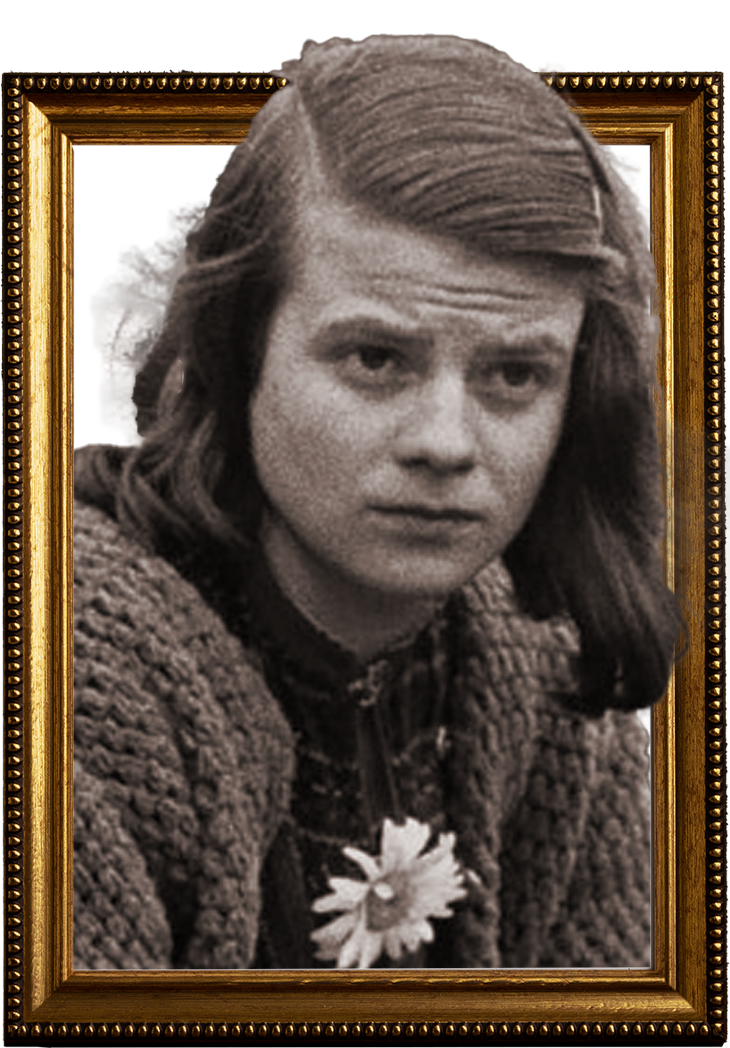
Sophie Scholl
(1921–1943)
Known for: Anti-Nazi resistance, co-founding the White Rose movement
Born: May 9, 1921 – Forchtenberg, Germany
Died: February 22, 1943 – Munich, Germany (executed by guillotine)
Nationality: German
Occupation: Student, political activist
Affiliation: Die Weiße Rose (The White Rose)
Early Life and Education
Sophie Scholl was born into a liberal, intellectual family that opposed Hitler’s ideology.
Her father, Robert Scholl, was a mayor and openly critical of the Nazi regime.
Like many German youth, she initially joined the League of German Girls (female division of the Hitler Youth), but quickly became disillusioned with the propaganda and authoritarianism.
She developed a strong interest in literature, philosophy, theology, and moral conscience.
Timeline: Sophie Scholl
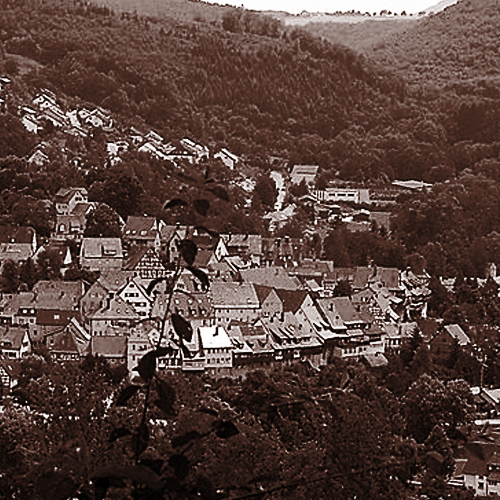
1921 – Born
Born on May 9, 1921, in Forchtenberg, Germany, into a politically liberal family.
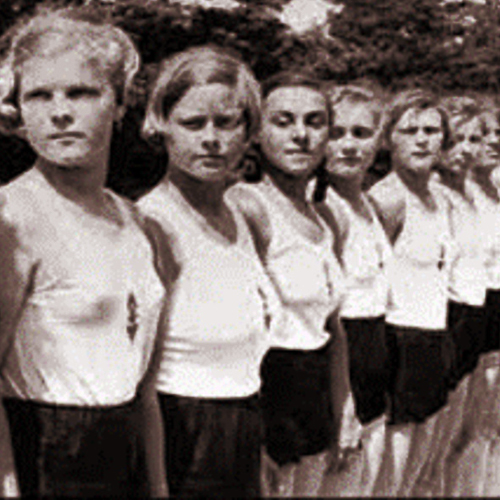
1930s – Early Education & Disillusionment
Joined the League of German Girls but grew disillusioned with Nazi ideology as a teenager.

1942 – University of Munich
Started studying biology and philosophy; reunited with her brother Hans and joined the White Rose resistance group.
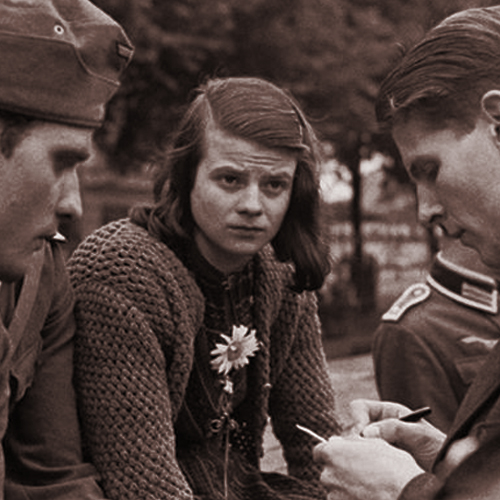
1942–43 – White Rose Movement
Helped distribute anti-Nazi leaflets calling for moral resistance, freedom, and the fall of Hitler's regime.
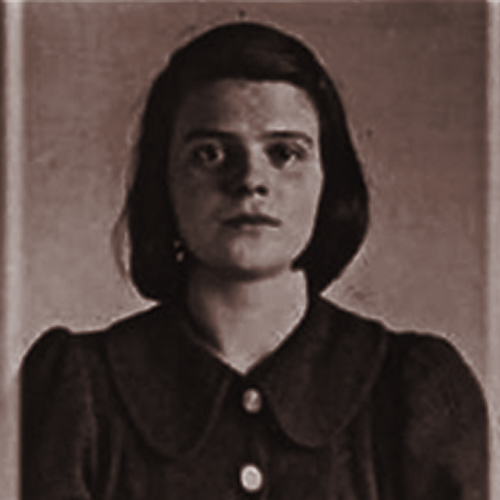
February 18, 1943 – Arrested
Caught distributing leaflets at the University of Munich with her brother Hans; arrested by the Gestapo.
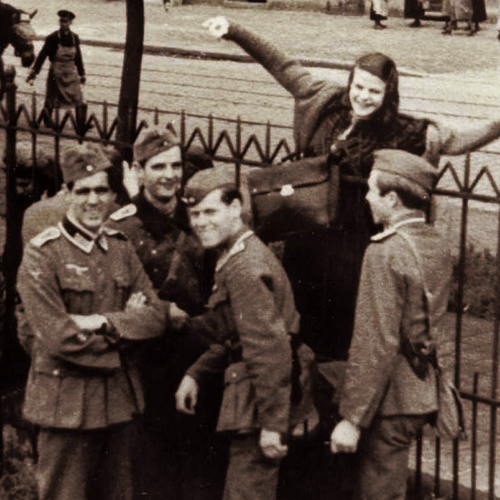
February 22, 1943 – Executed
Executed by guillotine just hours after her trial, at age 21, for high treason. Became a symbol of moral courage.
University and Awakening
-
In 1942, Sophie enrolled at the University of Munich, studying biology and philosophy.
-
There, she reconnected with her older brother Hans Scholl, who, along with a group of fellow students and a professor, had formed an underground resistance group: The White Rose.
The White Rose Movement
Purpose:
-
A non-violent student resistance group that distributed anti-Nazi leaflets.
-
Advocated for freedom, peace, and the fall of Hitler’s regime.
-
Called on Germans to resist dictatorship, oppose the war, and embrace moral courage.
Leaflets:
-
Between 1942 and 1943, the group produced six leaflets, anonymously distributed in public spaces, mailed to intellectuals, and even dropped from rooftops.
-
The sixth leaflet — urging Germans to “stand up against evil” — became their final and most widespread message.
Arrest and Execution
-
On February 18, 1943, Sophie and Hans were caught by a university janitor while distributing leaflets at the University of Munich.
-
They were arrested by the Gestapo (Nazi secret police), interrogated, and put on trial four days later.
-
Despite torture and pressure, Sophie refused to betray her beliefs or her friends.
Trial:
-
She, Hans, and fellow member Christoph Probst were convicted of high treason and executed by guillotine on February 22, 1943, just hours after the trial.
Final Words
“How can we expect righteousness to prevail when there is hardly anyone willing to give himself up individually to a righteous cause?”
“What we wrote and said is also what many people are thinking. They just don’t dare say it out loud.”
— Sophie Scholl during interrogation
Legacy and Impact
Sophie Scholl became a symbol of moral resistance and civil courage in Germany and around the world.
In Germany:
-
She is regarded as a national hero and moral conscience of postwar Germany.
-
Many schools, streets, and public places are named after her and the White Rose group.
Recognitions:
-
In 2003, Sophie and Hans were voted among the greatest Germans of all time in a national TV poll.
-
The German government and education system recognize her story as part of civic and moral education.
-
Her letters and interrogations are studied in German schools and universities.
Popular Culture
-
Films:
-
Sophie Scholl – The Final Days (2005): Academy Award–nominated film based on her final days and trial.
-
-
Books:
-
Sophie Scholl and the White Rose by Jud Newborn and Annette Dumbach
-
At the Heart of the White Rose: Letters and Diaries of Hans and Sophie Scholl
-
Sophie Scholl’s Message Today
Sophie Scholl’s life is a testament to the power of conscience, even in the face of tyranny. She reminds the world that speaking the truth matters, even when the cost is great.
“Stand up for what is right — even if you are standing alone.”
(One of many paraphrased tributes to her courage)
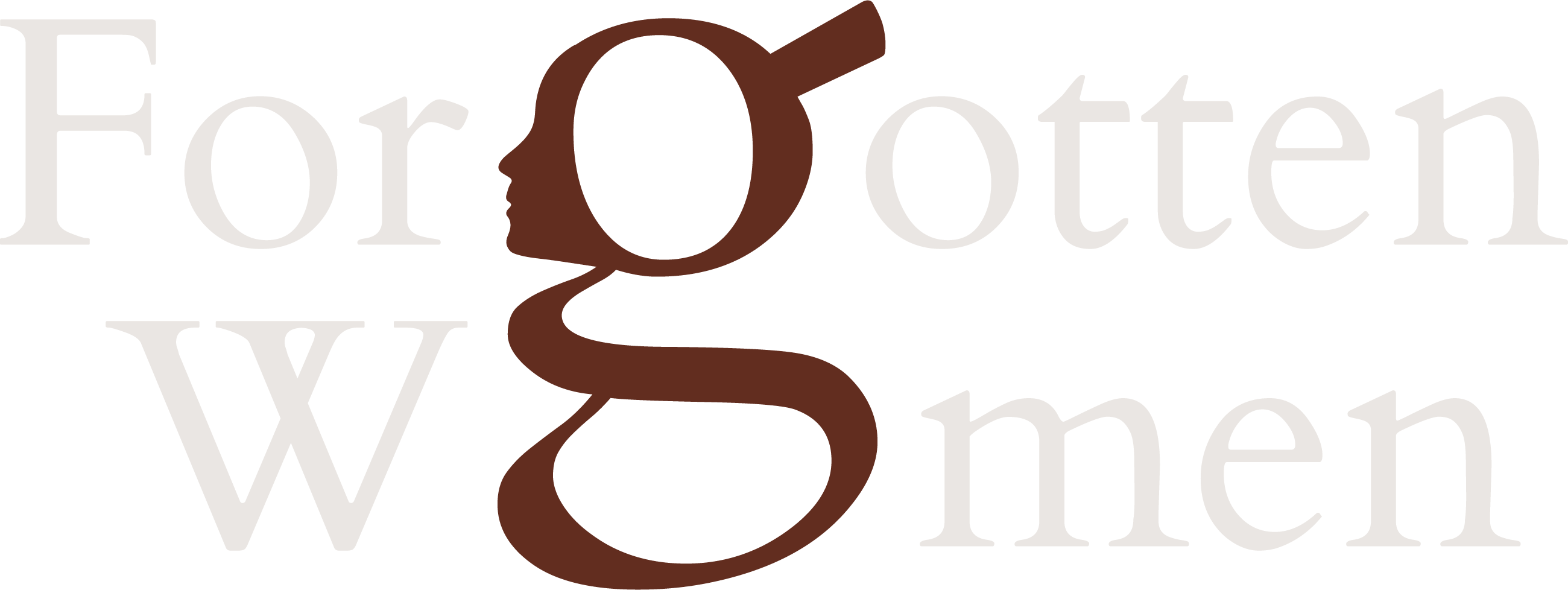
Discover the untold stories of women who shaped the world. Our platform is dedicated to celebrating the lives and legacies of extraordinary women—artists, scientists, educators, and activists—whose contributions have often been overlooked in mainstream history.